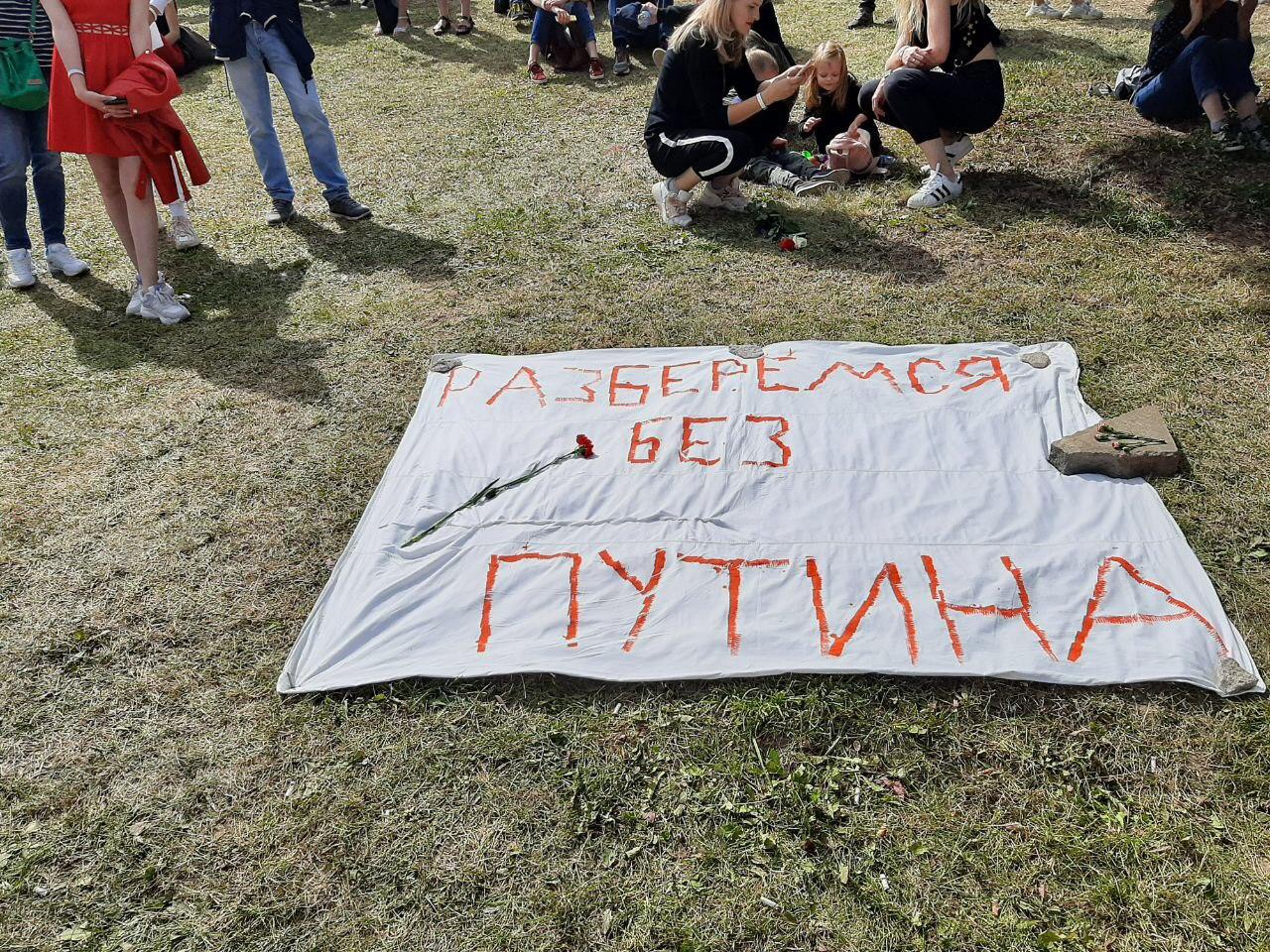The Belarusian roulette: The Kremlin makes a cautious bet
 The situation got worse
The situation got worse

By Anatol Pankouski
The Kremlin has moved from the non-interference policy in the political crisis in Belarus to palpable informational support for the Lukashenka regime. Putin has reiterated the Kremlin’s recognition of Lukashenka as the legitimate Belarusian leader and promised military support “if something happens”. However, he defined such support as having “definite boundaries”.
On August 28th, Russian president Putin in prime-time news Vesti on Russia 1 TV channel said that the presidential elections “have taken place” in Belarus and the Kremlin recognized their legitimacy. He also noted that the refusal of the OSCE Office for Democratic Institutions and Human Rights to observe the election in Belarus had testified to the fact that the position of the Western states had been prepared in advance.
A day earlier, Putin made a controversial statement that Russia had formed a reserve of law enforcement officers for Belarus, noting, however, that Russian security officials would not be involved unless “extremist elements” crossed “certain borders” and “set fire to cars, houses, banks, or try to seize administrative buildings”. According to Putin, when discussing the situation with Lukashenka, they agreed that there was no need to use the reserve now.
Whether the Kremlin is ready to deviate from its “non-interference” policy and how far it is ready to go in supporting the Lukashenka regime, was among the most discussed issues last week by different analysts. They offered a set of arguments “pro” and “against” such interference. The arguments “pro” were predominantly ideological, while “against” – mostly practical.
Arguments “pro”. The logic of the “autocrats international” and the need to prevent the Belarusian scenario in Russia are prompting the Kremlin to help Lukashenka in one way or another to stay in power. Imperial attitudes are guiding the Russian leadership against the protests, as they could presumably lead to the “wrong” geopolitical orientation of Belarus.
Arguments “against”. Support for Lukashenka, especially straight forward deployment of troops in Belarus, may be fraught with an increase in anti-Russian sentiments in Belarus, anti-Putin in Russia, and ultimately translate into a conflict more serious than in Ukraine. The success of the “Crimean operation” in the people’s minds has already leveled, and its repetition in Belarus is unlikely. The West could significantly increase the cost of Russia’s interference in Belarus’ domestic affairs. Also, there is an economic factor, should Russia decide to explicitly support Lukashenka, she would have to “take on board” the backsliding Belarusian economy.
There are no strong arguments in favor of safeguarding the Lukashenka regime through the direct involvement of Russian security officials, and, allegedly, there is no confidence in the Kremlin that the collapse of the Lukashenka regime and the rise of his opponents would necessarily be a bad prospect for Russia. It is equally true that so far, Putin has not received any tempting proposals from his Belarusian counterpart: Lukashenka has nothing to offer, and the Belarusian opposition has no leader. Therefore, when playing the ‘Belarusian game’, the Kremlin is limited to small and cautious bets.
Subscribe to our newsletter




Situation in Belarus
Constitutional referendum: main consequences


 Video
Video
How to count the political prisoners: are the new criteria needed?


 Video
Video
Paternalism In Decline, Belarusian Euroscepticism, And The Influence Of Russia


 Video
Video












